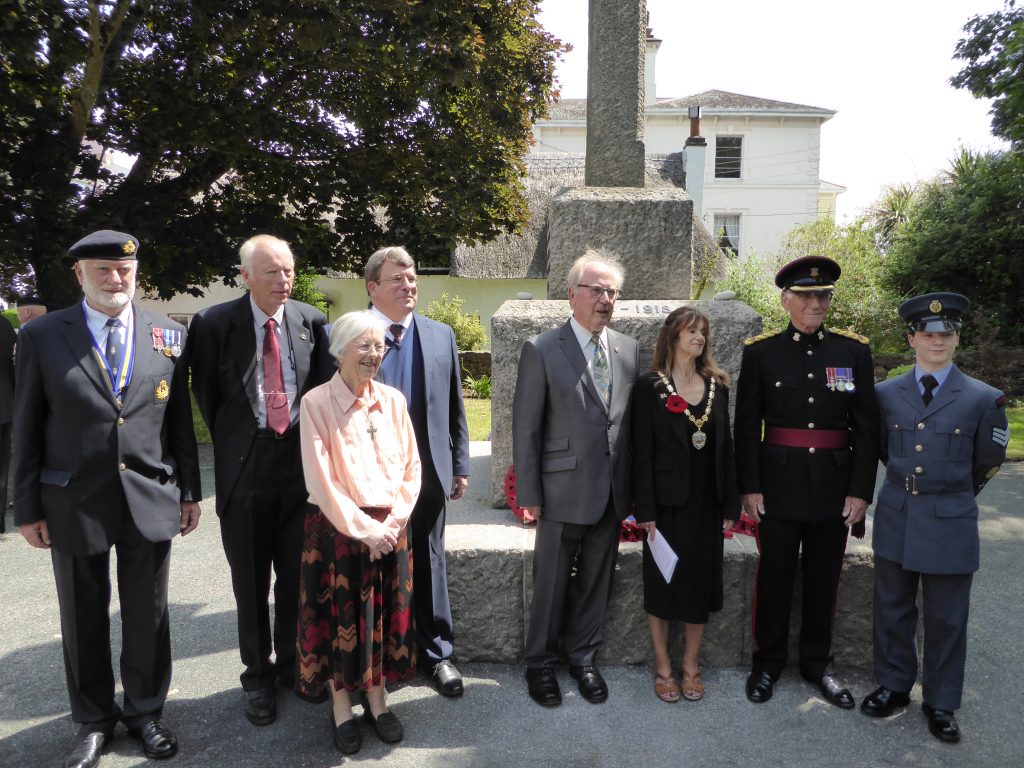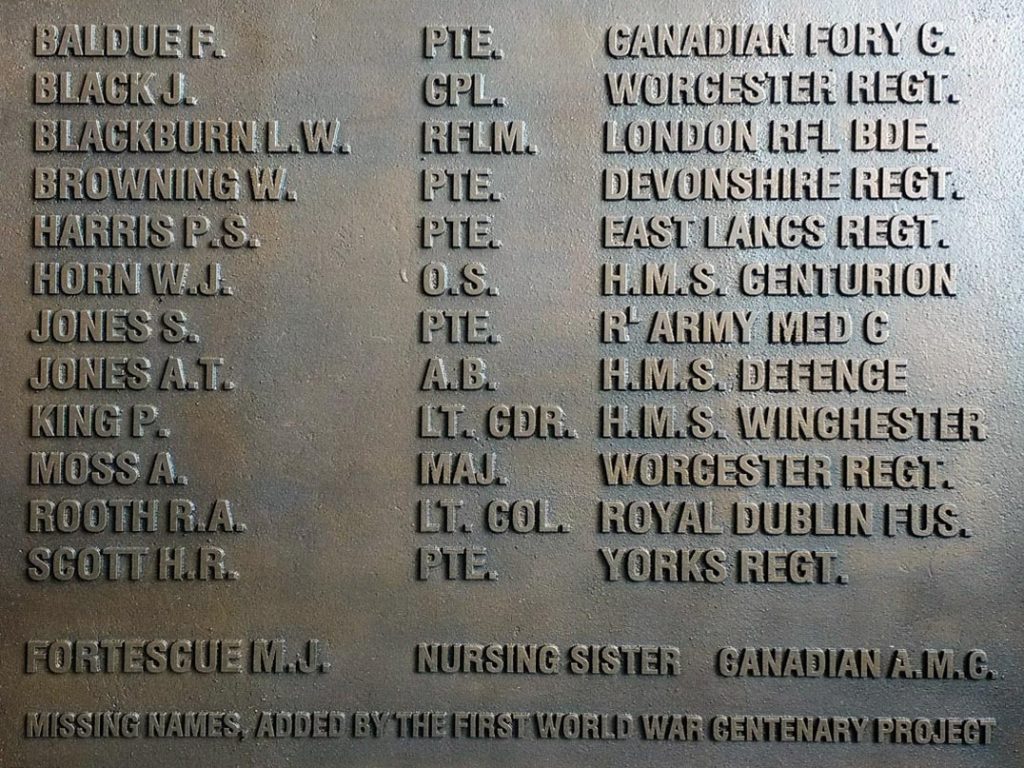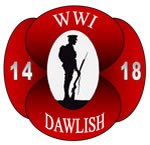While researching this project, the team discovered other casualties of the Great War who are not listed on the local War Memorials. In some cases there is a grave in a cemetery, a plaque on a church wall, or simply a reference in a newspaper article.
Each added name has been researched to ascertain the facts of their death and their connection to the Dawlish area. If their final resting place is in Dawlish cemetery they have been added to those who are otherwise commemorated on the War Memorials, even though they may not have a familial connection to Dawlish.
A ceremony was held at Dawlish War Memorial on Friday 28 June, 2019, at which the Deputy Lieutenant of Devon unveiled a plaque with 13 names missing from the existing memorials.
For reasons better known a century ago, the memorial did not include a sailor killed at the Battle of Jutland when his ship was sunk without survivors; a Lieutenant Colonel of the Dublin Fusiliers who led his regiment ashore at Gallipoli into a maelstrom of mortar and machine-gun fire; a nurse who lost her life when her hospital ship was torpedoed without warning, an event which became a subject of the Leipzig War Crimes Trials. Some of the thirteen were born in Dawlish and grew up here before their family moved away, some married into a Dawlish family, others are buried here in the cemetery with Commonwealth War Graves headstones, and some have no known grave and are remembered here.
After an introduction and brief notes on each name by members of the Dawlish World War One project, the new plaque was unveiled by Major Colin Pape, MBE, DL, Deputy Lieutenant of Devon assisted by the Lieutenancy Cadet. Members of Dawlish Branch Royal British Legion attended with their standards and a bugler sounded the Last Post before silence was observed, and Reveille led to the unveiling and laying of wreaths. In attendance were members of Dawlish clergy, the Mayor of Dawlish – Councillor Alison Foden, and the Chairman of Teignbridge District Council – Councillor Richard Keeling. The event ended with the National Anthem skilfully accompanied by the bugler.
The day was chosen for two significant events in WW1. On this day in 1914 Archduke Franz Ferdinand and his wife Sophie were assassinated in Sarajevo, contributing to the causes of the outbreak of war. In 1919 the Council of Three (Presidents Wilson and Clemenceau and Prime Minister Lloyd George) set it as the final date for Germany to formally end the war by signing the Treaty of Versailles.

Group at dedication of further plaque
Members of DawlishWW1 project (l to r) Tom Elliott, Keith Gibson, Ann Leigh, Michael Clayson, Robert Vickery, with Cllr Alison Foden – Mayor of Dawlish, Major Colin Pape MBE DL – Deputy Lieutenant of Devon, Lord Lieutenancy Cadet Kit Seale



